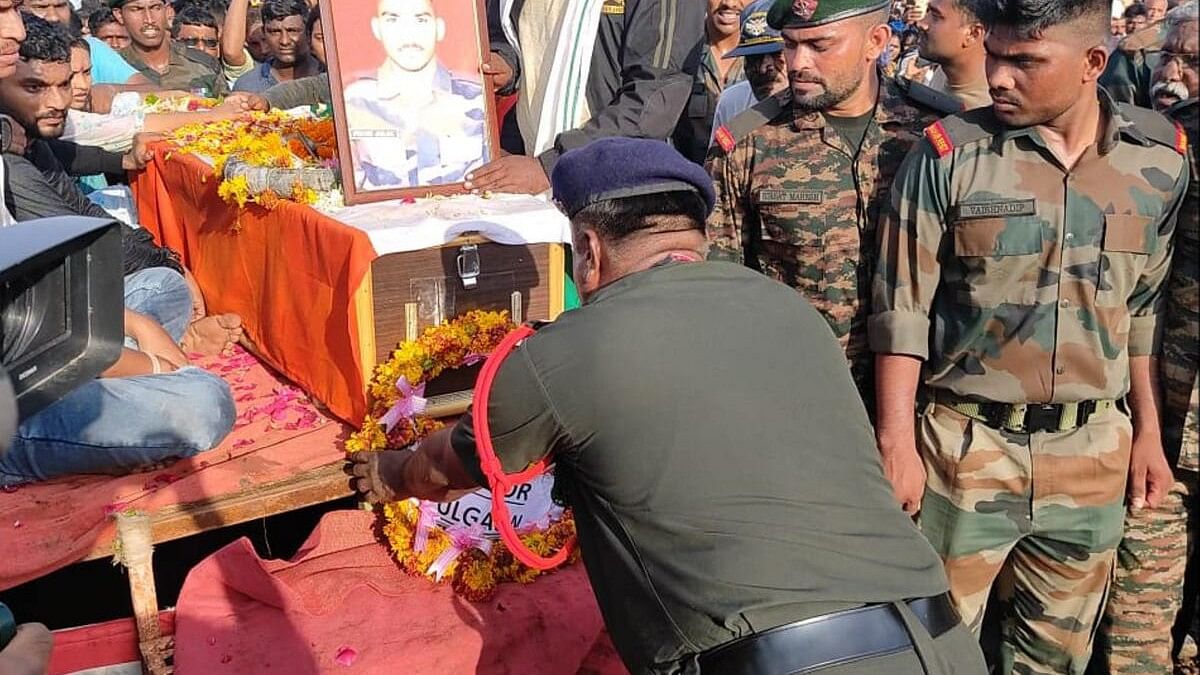
Army personnel pay last respect to jawan Praveen Prabhakar Janjal, who was killed in a terrorist attack in Kulgam, during his last rites, at his native village in Akola district, Monday, July 8, 2024.
Credit: PTI Photo
Srinagar: On July 7, the killing of six local militants in two separate encounters in south Kashmir’s Kulgam district highlighted the ongoing issue of local recruitment into militancy. Despite efforts by the police and security agencies to curb this trend, it has not been entirely eliminated.
The deceased militants were identified as Towheed Ahmad, Zahid Ahmad, Yawer Ahmad, and Shakeel Ahmad, all locals from Kulgam, and Aadil Hussain Wani and Faisal Bashir Lone from the neighbouring Shopian district.
Official data shows that 130 locals joined militant groups in 2022, while only 22 did so last year, marking an 80 per cent decline. The Jammu & Kashmir Police have focused on preventing local youth from joining militant organizations since last year.
However, the deaths of these six militants reveal the persistent issue of local recruitment. A senior police officer explained that the appeal of militancy in Kashmir still remains among some youth due to a mix of ideology, grievances, and peer influence.
“Historical and political grievances, combined with a lack of political resolution, foster a sense of desperation. Ideological narratives often romanticize the struggle, presenting it as a ‘noble resistance,’ while peer influence also plays a significant role in encouraging youth to join militant ranks,” he said.
However, J&K police chief R R Swain sees the killing of the six militants as a sign that the fight against terrorism in Jammu and Kashmir is progressing towards its conclusion.
He noted that the involvement of people and effective security measures have improved human intelligence, pushing the fight against terrorism towards its logical end. He emphasized that while isolated incidents still occur, the broader ecosystem supporting widespread terrorism has significantly weakened.
Despite the police and security forces’ commitment to restoring peace and preventing further recruitment, the recent events underscore the need for a more nuanced approach to address the root causes of militancy.
The encounters on July 7 serve as a stark reminder that while progress has been made, achieving lasting peace in the region remains challenging, and local militancy continues to be a significant issue.